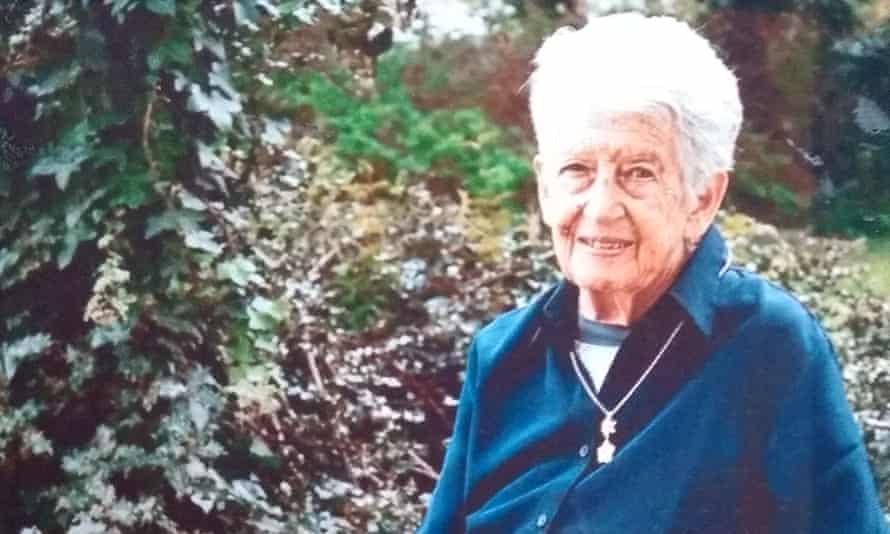
Art, social and women’s issues dominated the life and works of the writer and journalist June Rose, who has died aged 91. She
re Bohemian (1990), perceived him as an elegant stylist rather than the great sensualist described in earlier studies that had drawn heavily on lurid stories of his chaotic lifestyle.
She said that in her books she felt driven by “an urge to tell the story of a person … who had an extremely worthwhile life which was either mis-told or wrongly perceived or not told at all”. A notable example was Marie Stopes and the Sexual Revolution (1992). Long an iconic figure for women’s rights campaigners, Stopes proved under June’s scrutiny also to be an enthusiastic eugenicist. While still an admirer of Stopes’s achievements, June was taken aback by this disclosure and concerned about how it would be received.
For Elizabeth Fry: A Biography (1980), June was the first researcher to work from the unexpurgated diaries and letters of the social revolutionary. Fry, she felt, was heroic in choosing “to be identified with women prisoners, probably the most despised of all creatures in 19th-century Britain”.
When, in 1982, June was invited to write a history of the children’s charity Barnardo’s, she stipulated that she must be allowed to report independently on what she found in the organisation’s vast archives. The resulting book, For the Sake of the Children (1987), on one of the greatest charitable enterprises of the 19th century, also records, for example, the ill-effect of the mass emigration of children to work in freezing conditions in Canada before the first world war.
June always knew she wanted to be a writer – not an easy ambition to fulfil, she would explain, “at a time when young women did not go in for careers” and “just waited to be married”. She was born in Bedford, the fourth of five children of Lily (nee Daen) and Benjamin Rose, who had built up the Rose Stores chain of clothing shops. As the family began to prosper, they moved to Golders Green, north London.
Educated at South Hampstead primary school, June was later a boarder at the Warren school in Worthing, West Sussex. Having been steered away by her father from attending university, by 1946 she had talked her way into a job in the library of the Time Life bureau in London.
A few months later, Gen Dwight Eisenhower, Supreme Allied Commander in Europe, was to be given the freedom of the city of Edinburgh. Time Life was stuck for a staffer to cover the story and called on June. She went on to interview such figures as the ballet dancer Vaslav Nijinsky, the conductor Bruno Walter, the writer PG Wodehouse and the artist Lucian Freud. She also got to know Graham Reynolds, keeper of paintings, prints and drawings at the Victoria and Albert Museum, and he commissioned her to write a monograph on the Punch illustrator John Leech, her first book, published in 1950. This connection introduced June to a world of artists, curators and fashion designers and inspired a lifelong love of art, “perhaps the most important change in my life”.
In 1948, with “£25 and a typewriter” she moved to Dublin and started freelancing on the Irish Press, a nationalist newspaper controlled by the family of the politician Eamon De Valera. In July 1950, De Valera decided on a family trip to Israel and so June, anxious to visit the new state, “did a deal with the Press to cover the story”. June described arriving in Israel: “For the first time in my life, I felt completely at home.” She got a job with the Jerusalem Post and subsequently the Hebrew-language newspaper Maariv.
After a bout of illness June was persuaded by worried friends to return to Britain for treatment. She was diagnosed as probably suffering amoebic dysentery, for which she underwent lengthy treatment. She eventually returned to work as a subeditor with the Jewish Observer and by the start of the 1960s had a staff job on the Jewish Chronicle.
She began to contribute articles to the Times and to freelance for BBC Radio 4. In 1967 the Times commissioned June to report on boarding schools for blind children with additional handicaps, which led her to write Changing Focus: The Development of Blind Welfare in Britain (1970) for the RNIB. She gradually shifted her focus to researching and writing books, bringing into the light, as she put it, “unknown stories that should be told and that the biographer is in a sense privileged to tell”.
June’s earliest heroine had been Dr James Miranda Barry, an officer in the British Army from 1813 to 1859, and her biography, The Perfect Gentleman, was published in 1977. A brilliant surgeon, tireless campaigner for medical reform and compassionate inspector-general of the army, Barry was found on death to have been a woman who had lived disguised throughout a long and distinguished career.
In one of two further acclaimed artists’ biographies, Mistress of Montmartre - A Life of Suzanne Valadon (1998), June recounted the extraordinary life of the mother of the artist Maurice Utrillo. June rated Valadon among the finest artists of her day, who never won the recognition she deserved. Her Daemons and Angels – A Life of Jacob Epstein (2002) chronicled the rags-to-riches life of the sculptor from birth in a New York Jewish ghetto to a knighthood. She believed Epstein’s genius has yet to be recognised.
June is survived by her younger sister, Sue. Her elder sister and two brothers predeceased her.
Nessun commento:
Posta un commento